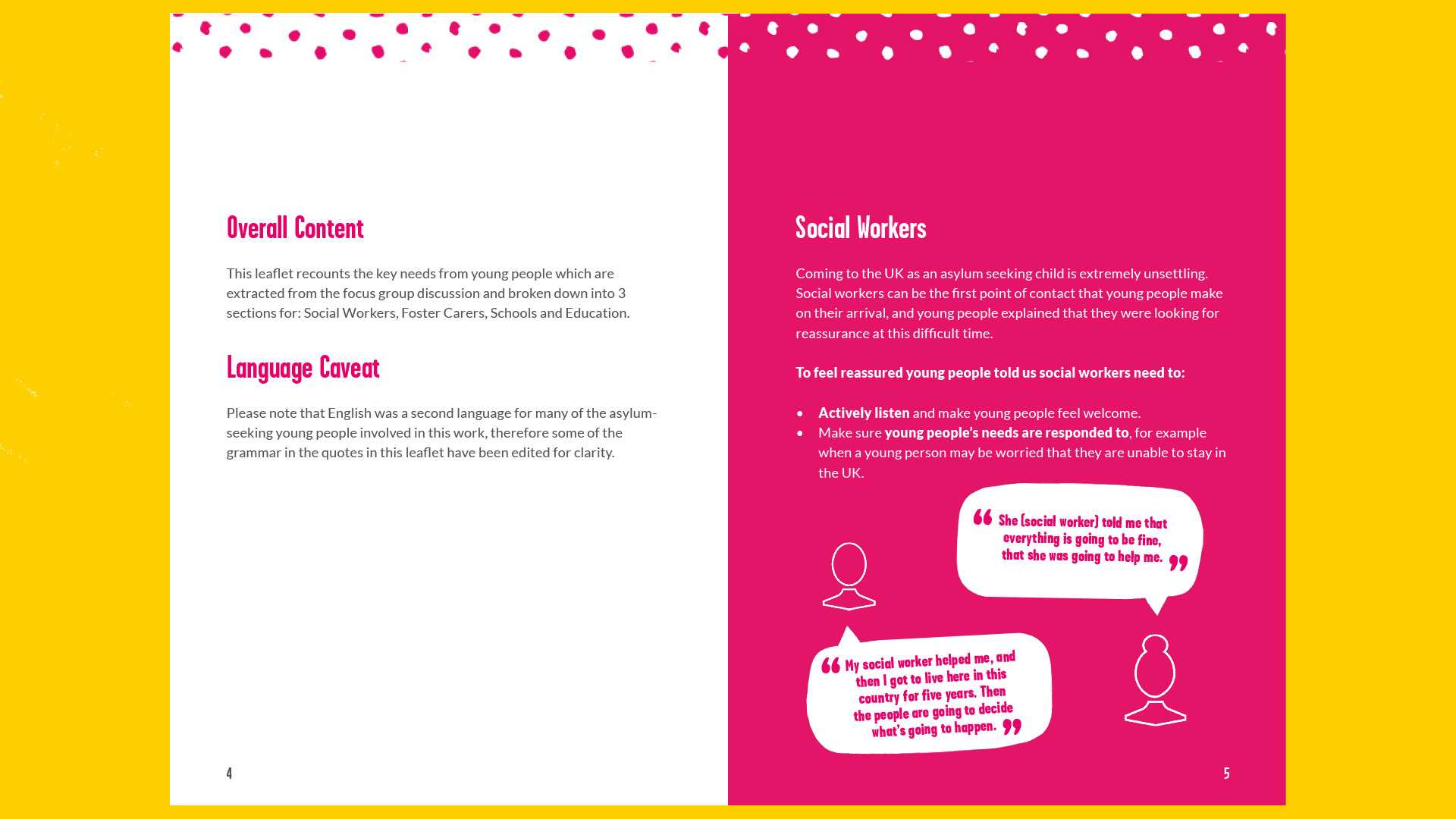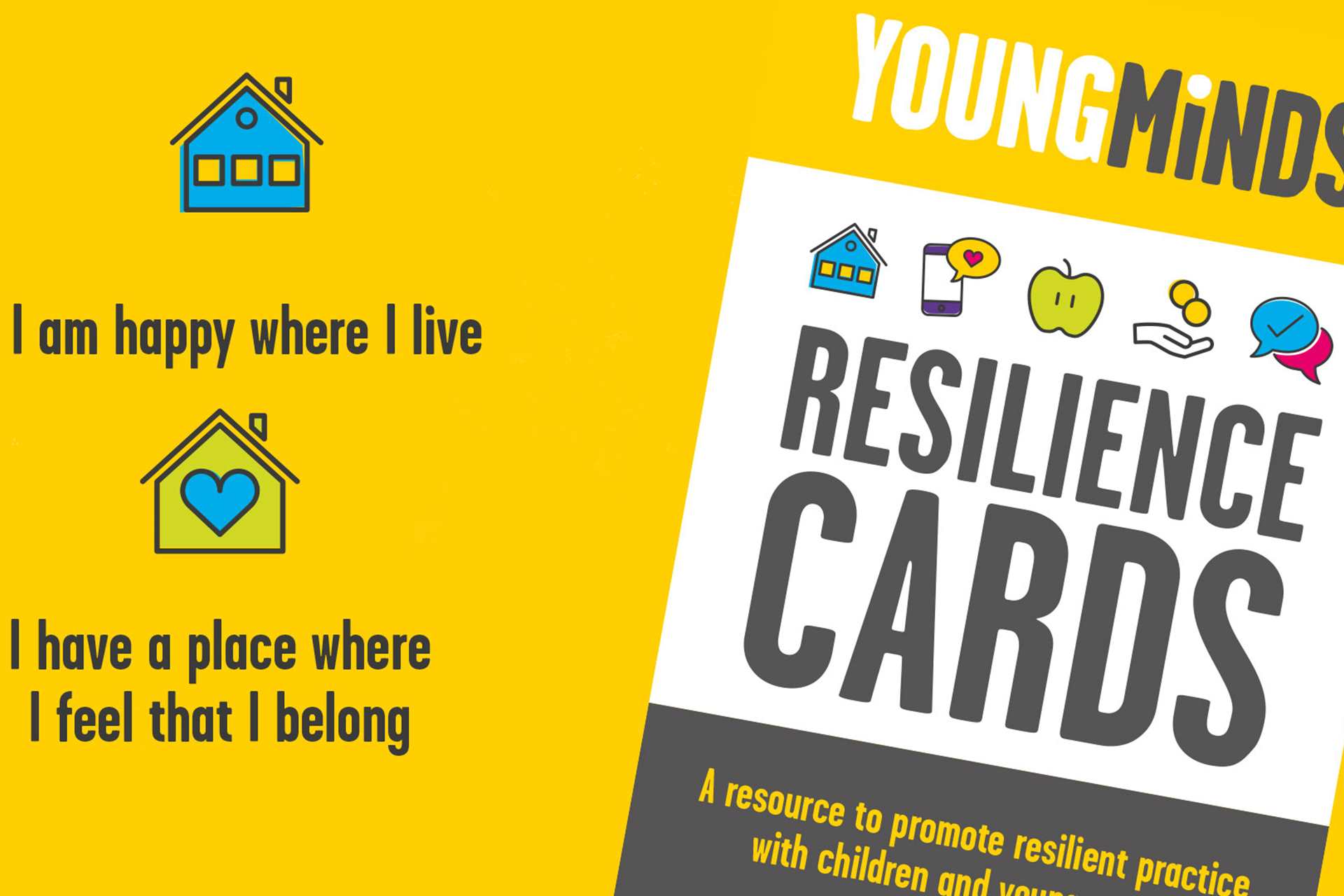
- For:
- Community support,
- Youth workers
Practical tools for professionals supporting asylum seeking and refugee children across England. These resources were made as part of YoungMinds Welcome, a project that aimed to build skills and capacity within the children's services' workforce and help professionals to support the most vulnerable young people.
The YoungMinds Welcome film shows the experience of an asylum seeking child, and young person, as they share their thoughts about what helped them during this difficult time in their life. You will also hear the experiences of a parent, teacher and a foster carer of asylum seeking and refugee children. The voices and experiences in this film came directly from professionals we worked with or in our network, as well as participants on the YoungMinds Welcome training courses.

In this short leaflet, young people with asylum seeking and refugee experience share the key things that they need social workers, foster carers and schools to do to help and support them.
This resource was made to bring the voices, experiences and lens of young people with asylum seeking and refugee experience directly to those who support them, and was extracted from a focus group discussion.
Document type: PDF
Document size: 1.7MB

Read what refugee and asylum seeking parents would like other adults to know in order to best support their children.
This insight came from the time we spent with refugee and asylum seeking parents, discussing ways in which they could support their children’s emotional wellbeing and mental health. During these sessions, we asked the parents what they would like other adults to know in order to best support their children.
Document type: PDF
Document size: 0.3MB

The YoungMinds Welcome project recognises the importance of support for foster carers who look after refugee and asylum seeking children and young people. One key part of this project was to organise and run two groups for these carers, where they would have an opportunity for learning and development, but also to meet each other and draw upon peer support.
The learnings and experiences of these experienced carers have been collated to help support foster carers who want to care for refugee and asylum seeking young people.
Document type: PDF
Document size: 5.5MB
The purpose of this activity is to encourage pupil participation based on the resilience framework. Ideally, it would be run with a group of 8-15 pupils from Year 4 upwards.
To do this activity, you will need our Resilience Cards. You can download the cards as a PDF below, or purchase a pack from our shop.

Document type: PDF Document size: 0.3MB

Document type: PDF Document size: 0.2MB

Document type: PDF Document size: 0.2MB
Whether you love the page or think something is missing, we appreciate your feedback. It all helps us to support more young people with their mental health.
Please be aware that this form isn’t a mental health support service. If you or a young person you work with is in crisis right now and wants to talk to someone urgently, find out who to contact on our urgent help page.
At YoungMinds we take your privacy seriously. If you’d like to read more about how we keep the information we collect safe, take a look at our privacy policy.